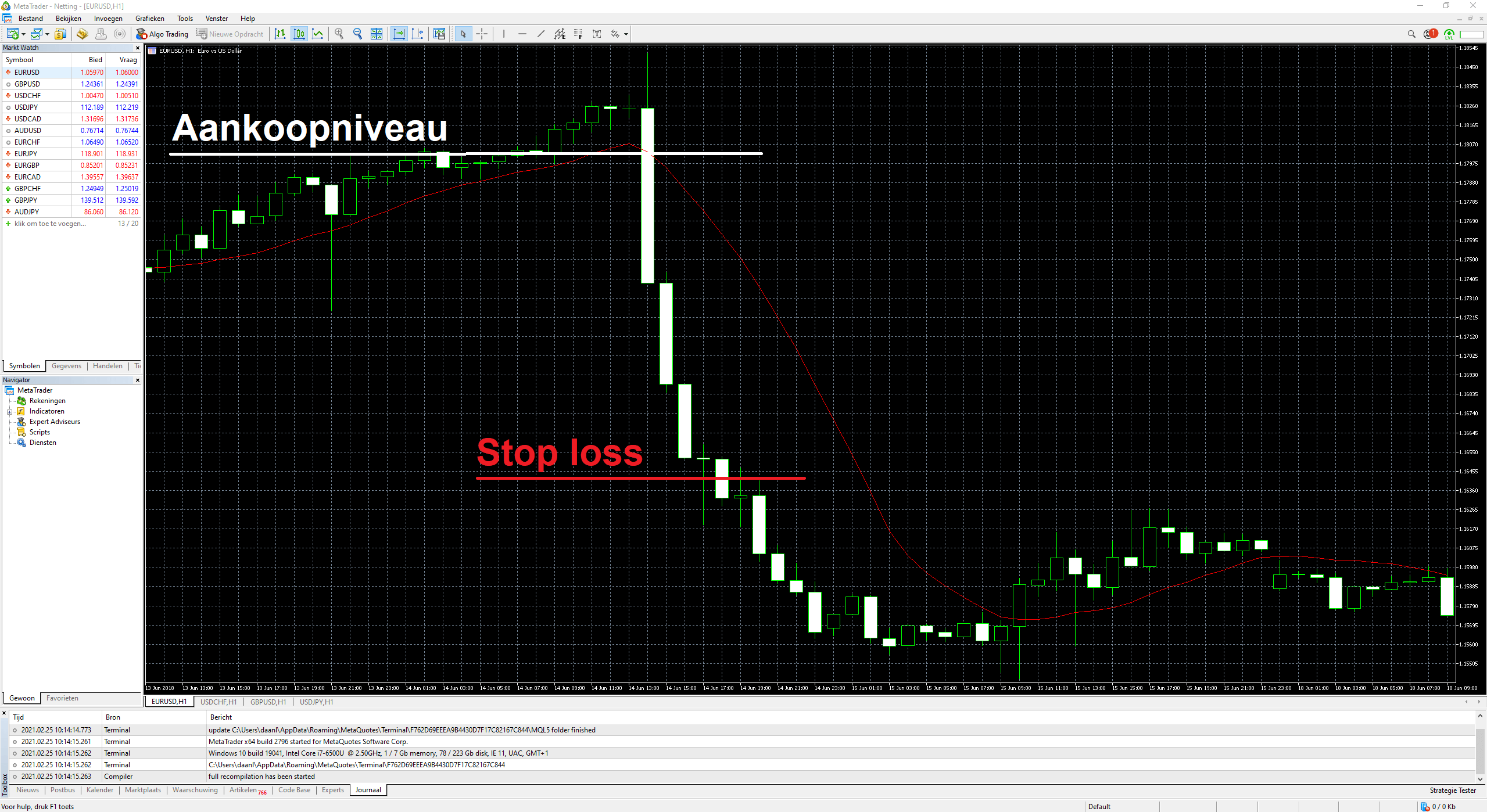Costs of a CFD
A Contract For Difference (CFD) is a popular leverage product among active investors with a strong stomach. With a relatively small deposit, large returns (or losses) can be achieved by responding rapidly to both price increases and decreases. As soon as a position is closed, the profit or loss is always determined by the difference in value of, for example, a share or index (also called the underlying value). It is highly advisable to familiarize yourself with the operation and CFD risks in advance . There is no such thing as a free lunch and that also applies to CFDs. What costs should you take into account?
Costs of trading CFDs
Other costs can also play a role when you invest in CFDs. Transaction costs are charged almost everywhere when you invest in shares, bonds or ETFs themselves. This does not apply to CFD contracts with these shares, bonds or ETFs as underlying value . CFD investors are more into fast transactions. If you still have to pay transaction costs of, for example, €5 for every transaction, this has far too much effect on your potential return. That is why trading in CFDs is often tied to costs based on, for example, spreads.
Spreads
A spread is the difference between the price offered for a certain security and the price asked for the same security. With CFDs, you do not trade in the actual product such as a share or commodity, but in a contract with that product as the underlying value. The provider of such a CFD contract can be another investor or the broker itself, for example, whereby the costs in this area do not have a very clear origin. The difference between the purchase and sale price, the spread, is paid by you as an investor and is certainly something to take into account.

Currency exchange rate
You will be faced with currency costs if the CFD you are looking for is listed in a different currency (for example Canadian dollars). If you invest with euros in a product that is traded in Canadian dollars, you will also have to take the exchange rate into account. In addition, there may also be additional costs for such a situation, such as 0.1% of your order value.
Financing costs and interest
The CFD leverage is made possible because the broker/provider is prepared to lend money. If you buy a CFD of €50,- with a leverage of 20, the broker finances €950,- to make this investment possible. As an investor, you have to pay interest on these financing costs, which the broker often deducts from your margin on a daily basis.
Margin refers to the amount you have invested in your investment account. In the case of a loss-making CFD position, a broker can claim this spending space. The size of the positions you can enter into is also limited by the size of your margin. This prevents you from getting into debt with your own broker. A broker usually also charges interest for holding a CFD position for a long or longer period. This interest can be deducted from the value of the CFD itself.
Stop loss
To prevent you from making a big loss or to help you achieve a predetermined profit margin, you can set a stop loss. You can set this to a certain value at which your order should be sold. For example, if you buy a share with a value of €100 with CFDs, you can set your stop loss to a value of €94. When the price reaches this value, your order will be sold to prevent further losses. This is depicted in a MetaTrader 4 environment in the image below. In order to set this order, some brokers charge money that you have to take into account.

Other costs
There are brokers who charge fees if you are too inactive. For example, if you do not log in to the trading platform for a month or do not execute a trade for a month, there may be costs involved, which are often charged per month. In addition to these inactivity costs, almost every CFD broker also charges costs for keeping a position open overnight (overnight costs). These are often variable and difficult to track. If you keep a CFD position open at night (for example after 23:00), there may be additional costs involved.
Loss
Finally, it is good to know that a CFD is always an agreement between investor and broker. In some cases, the broker even benefits from your loss, because the broker automatically enters into an opposite position. The broker also determines the prices and the spread of a CFD. Free market forces therefore only apply to the underlying value.
Compare CFD brokers
Did this article make you interested in trading CFDs? Start by finding the most suitable trading platform by comparing CFD brokers via our comparison tool. Are you not sure yet whether this is the right fit for you? Then you can also start with a demo account at various brokers. This allows you to test for free and without obligation whether the broker and investing with CFDs is something for you!